Blog: Being a Politics and International Relations student
Our students share their experience of studying politics and/or international relations at Queen Mary:
Jump to:
- 3 reasons (and many more) to choose Queen Mary University of London
- How extra-curricular activities can help your wellbeing
- Managing your studies and extracurricular activities
- Making the most of your time at University
- Studying Politics with Business Management
- Living at home while at University
- Coming to Queen Mary as an International Student
- Life as a Student during a Pandemic
- How to approach your readings
3 reasons (and many more) to choose Queen Mary University of London
By Bilen, BA International Relations
If you are still in the process of deciding which University is the right one for you, I can tell you about my experience and mention a few reasons why I am extremely happy with the choice I made three years ago.
First of all, Queen Mary has a uniquely diverse body of students and teachers. In my first year I had the chance to meet people from all over the world and learn so many things from them. I discovered countries I had never heard of before, such as Timor Est and I became friends with people from all the continents, sharing their culture and tradition. As far as the academic body is concerned, it is extremely diverse and we are exposed to so many perspectives and points of view, being able to then develop our own critique and ideas. Diversity and heterogeneity of opinions are essential to the study of International Relations, as they are key to deeply understand the various factors behind global concerns and bridge the gaps between different countries and people.
Then again, a further reason why I chose Queen Mary, is its location. Not only it is in London, one of the main cities in Europe and the world and a great place to study International Relations, as you are constantly exposed to internationality, but it also has a campus. Queen Mary is the only London University with a campus. The latter is situated in East London, the heart of fun, art, vintage shops and delicious food. Living the campus life has been one of the best experiences of my life. You really get to fully enjoy the University experience, creating lots of friendships, being able to access the library 24/7 and grab a coffee at the local cafes.
Finally, Queen Mary offers a crazy amount of opportunities. Specifically, the School of Politics and International Relations’ career service has been awarded multiple prizes for its efficiency and I can testify that it is really amazing. I got the chance to gain multiple job experiences, in different sectors, from the charity one to the business one.
How extra-curricular activities can help your wellbeing
By Hugo, BA International Relations
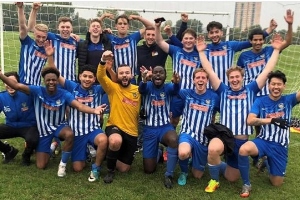 Being an International Relations student can be stressful at times with the constant workload and keeping on top of your assignments. Therefore, I believe taking part in extra-curricular activities is a great way to take your mind of your degree. In this blog, I will list the top five reasons why I think every student should take part in an extracurricular activity.
Being an International Relations student can be stressful at times with the constant workload and keeping on top of your assignments. Therefore, I believe taking part in extra-curricular activities is a great way to take your mind of your degree. In this blog, I will list the top five reasons why I think every student should take part in an extracurricular activity.
- It is a great way to meet new people that have similar interests. There are a wide range of clubs and societies that can be found on the student union website that are suitable for all different interests. From my own personal experience joining the Queen Mary Men's Football Club enabled me to make lifelong friends and meet many new people that I would never have met if I didn’t join the club.
- It is a great way to keep fit and get active! Queen Mary offers great ways to stay fit as a student. If you are not in a sports club or society, then I would suggest following the student union on Instagram, @qmsu. This is a great way to keep updated with the activities that the student union offers to get students active such as a HIIT Zoom Class.
- It gives you a chance to try something new and challenge yourself! As I mentioned earlier there are a wide range of clubs and societies available at Queen Mary. So why not try something new? Maybe join the QMBL Pole Fitness Society or QMBL Muay Thai. Being at university gives you this unique opportunity to try something that you have always been reluctant to do or always thought about doing but never had the courage to actually do it. Now is your chance to challenge yourself and try it!
- They offer great networking opportunities. This is especially the case for academic societies, so if you want to work in the world of Politics after you graduate as an International Relations student then maybe you should consider joining the QM Politics and International Relations Society. Joining a career-based society could lead you to meet potential colleagues.
- You can add all of these experiences to your CV. Having a CV with a first-class honour degree is all well and good however employers will also be looking for someone that engages with other activities outside or related to your degree. Therefore, joining a society is a great way to do this. It also is a great way to stand out from your competitors!
Managing your studies and extracurricular activities
By Leyla, BA Politics and International Relations
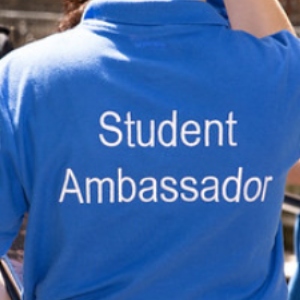 During my studies I’ve dabbled in different mentoring programmes such as the Buddy Scheme, the Peer Assisted Study Support Scheme (PASS), a School Ambassador Programme and random events I’ve caught wind of through my emails. They’ve been great experiences, but at times I’ve found myself overwhelmed by the commitments I’ve made, here are some tips and thoughts to help you navigate your way through the hundreds of extracurricular opportunities at Queen Mary:
During my studies I’ve dabbled in different mentoring programmes such as the Buddy Scheme, the Peer Assisted Study Support Scheme (PASS), a School Ambassador Programme and random events I’ve caught wind of through my emails. They’ve been great experiences, but at times I’ve found myself overwhelmed by the commitments I’ve made, here are some tips and thoughts to help you navigate your way through the hundreds of extracurricular opportunities at Queen Mary:
YOU manage your level of commitment: whilst there are some roles that will require a pretty hefty time commitment – like president of a society – generally the level of commitment is up to you. So, don’t fall into the trap of overcommitting yourself if you know you’re tight on time and have a string of assignments due.
Work out what the requirements are: One of the reasons I applied to be an ambassador for the School of Politics and International Relations is that it is a completely flexible job, you opt in for the work you want to participate in. So, if you don’t have much time to give or don’t want to spread yourself too thinly then ask/read what the time commitment will be. This will help you with tip #1.
Experiment in the first year: being in my final year now, I can say with certainty that I just don’t have the sort of time I did in the first year. Many of my friends joined a ridiculous amount of societies, which may or may not have been due to freebies, but I didn’t and I wish I had. The first year is a perfect time to try different societies out and get to know people from within your home school and across the university.
Not every experience can go on your CV: a lot of opportunities advertise themselves as being able to give you skills that will absolutely transform your CV and this may be true. But this is not always the case and this shouldn’t be your only motivation for getting involved in the Queen Mary community. If there’s something you enjoy then get stuck in!
Quality over quantity: If you’re one of the people that is looking for extracurricular experiences to mention on your CV, then try getting involved in societies and roles where you get to actually hone the skills you want to mention on your CV. It is much more valuable to have played a key role in one thing than have been involved in 20.
Watch out for emails: it may seem like they’re never ending, but more often than not there’s an opportunity in there for you. All it takes it scrolling to the bottom or reading that small subheading. Many of the extracurricular opportunities are free, discounted and/or affordable – which isn’t the case in the ‘real’ world. Why miss out because you didn’t read an email?
The Queen Mary Students' Union and many others have been working tirelessly to ensure that extracurricular activities continue virtually, so please make the most of them and use these tips for guidance.
Making the most of your time at University
By Bilen, BA International Relations
 The amount of extracurricular opportunities outside of your degree is crazy. And it would be a shame not to make the most out of it! Personally, I have been seizing every single opportunity since day one: running for the position of Course Rep, initiating a Parliamentary internship during a School visit at the House of Commons, attending QTaster sessions, fundraising for the University of London, working as Business Developer for two start-ups and being a member of the UN Society and the Vice-President of the European Society.
The amount of extracurricular opportunities outside of your degree is crazy. And it would be a shame not to make the most out of it! Personally, I have been seizing every single opportunity since day one: running for the position of Course Rep, initiating a Parliamentary internship during a School visit at the House of Commons, attending QTaster sessions, fundraising for the University of London, working as Business Developer for two start-ups and being a member of the UN Society and the Vice-President of the European Society.
Are you wondering how did I manage to find all these opportunities? PROACTIVITY. Attend conferences and events, add people on LinkedIn and reach out! Show your interest and make yourself available to any opportunity. Then again, Queen Mary has a great Careers Service, literally every week new incredible opportunities are being sent out via email: subscribe if you haven’t done so already. Finally, be curious and open-minded: every extracurricular activity will make you grow in some way and will equip you with a new skill for the real world out there!
Now, you might be wondering how I managed to keep up with everything without overlooking the Uni work. Well, the key is to OPTIMISE. First of all, attend all your lectures and seminars, do the essential readings and take notes. Secondly, choose in advance the various topics you will be doing your assignments on, so that you start doing the readings (essential and additional) beforehand and you will have the chance to deepen your knowledge in the seminars, while drafting a first plan for you essay. Thirdly, Professors are there for you, so do go to office hours and make the most out of them, discussing your drafts with your seminar tutor. Finally, I personally procrastinate less and work better if I have a precise schedule and multiple commitments during the day, so that I don’t even have the chance to waste my time.
Studying Politics and Business Management
Shaian, BA Politics with Business Management
 People may argue that politics and business do not and should never be mixed. However, I believe this is not the case. Politics and Business have a mutually beneficial relationship as it allows both governments and businesses to learn and share knowledge and practices but such relationship if misused can lead to corruption. Both politicians and businessmen have the ability to improve the lives of many both economic and socially. Studying Politics with Business Management has allowed me to critically assess such relationship as well as the politics of business.
People may argue that politics and business do not and should never be mixed. However, I believe this is not the case. Politics and Business have a mutually beneficial relationship as it allows both governments and businesses to learn and share knowledge and practices but such relationship if misused can lead to corruption. Both politicians and businessmen have the ability to improve the lives of many both economic and socially. Studying Politics with Business Management has allowed me to critically assess such relationship as well as the politics of business.
Modules whilst studying Politics with Business Management are split throughout the year with six modules focusing in areas of politics and two in business (i.e. a major minor combination with the focus on politics). Within politics, topics can range from the theory of politics, colonialism, international development and British politics. As I am interested in international development, majority of my politics modules pay close attention to the relations between developing and developed countries, especially my favourite module the 'International Politics of the Developing World'. Combined with business management modules such as 'Fundamentals of Management', this has allowed me to critically understand how the global business chain has an effect on not only the people receiving the goods and services but those who supply such goods and services, how lack of regulations implemented by certain governments can lead to exploitation and how to use business management strategies have the potential to contribute to improving the quality of life in the developing world.
Although combined with politics, business management does not only look at how the global business chain works, and the politics involved. The way the course is structured allows those who have never studied business before or those who are not comfortable with maths, myself included, to understand the fundamentals of economics in business, accounting and marketing. Such variation has allowed me to expand my career opportunities not only in the politics field but in the management field as well.
Throughout the course, I have had the opportunity to meet not only people studying politics or politics with business management, but people who are studying geography with business management, engineering with business management and more. Such diversity has allowed me to expand my social circle and learn about other people’s perspectives on world issues or business especially with my politics and business management peers as many have opposing views and opinions on how society and business functions whether pro-capitalist or pro-communist.
Living at home while at University
Mahnoor, BA Politics and International Relations
As a second year student living at home, university life compared to those staying in accommodations has been different. Though, this hasn’t stopped me from enjoying my time at university and making the most of the experience.
Depending on how far you live from university, commuting is properly one of the longest part of living at home, especially when travelling during rush hour. For me, my journey is usually 45 minutes, which isn’t bad. I always plan out my journey in advance so that I know I wont be late to any seminars/lectures, I do this by checking the train times.
As this year my lectures/seminars were held remotely, I did not need to commute, just had to turn my laptop on! However, there were some on campus activities which helped in making my university experience this year normal due to the pandemic.
Getting involved

Living at home may seem like a barrier to getting involved in university life, that is definitely not the case. In fact, living at home makes you more inclined towards getting involved at university. When I first started university back in 2019, I attended the freshers fair and joined many different societies such as ISOC, the Pakistani society etc.
Personally, I think that attending the freshers fair is undoubtedly worth it because it’ll give you an opportunity to see what university has to offer. You definitely wont get bored as there are numerous events to suit all interests.
After joining various societies, I was added into their group chats which allowed me to keep up to date with future events. For example, early last year (pre – Covid) I attended the sisters dinner, which was hosted by the Queen Mary Sisters ISOC. Here, I met so many new people, if it was not for this event, I wouldn’t have met my friends who I class as sisters now.
Another way of making the most of university is by interacting with those in your seminar/lectures. It is a good idea to create a study group with those in your class as it’ll support you with your studies, but it will also allow you to make new friends.
Following university social media pages is a helpful tool as you’ll be informed of any upcoming events, see what is happening on campus and meet other students on your course.
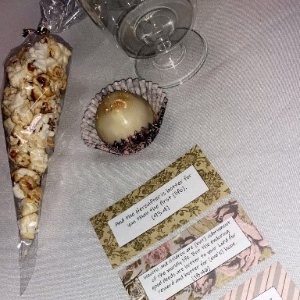
Tips:
- Attend freshers fair and join societies = this allowed me to create memories that I will always remember.
- Getting to know other students = interact with those in your seminars/lectures, this is a major ice-breaker.
From my experience as a student who commutes, you are still able to enjoy your time whilst staying at home. There are many ways such as through the countless events hosted by societies, making friends in your seminars/lectures and social media.
I hope this has been useful, hope you enjoy your years at university whether you are staying at home or in accommodation.
Coming to Queen Mary as an International Student
Olivia, Politics and International Relations Student with a Year Abroad
If you are considering becoming an international student, there are a few extra aspects of university life that you must take into consideration before making your final decision. The purpose of this post in particular, will be to provide some advice that I have gained from my own personal experience as an American international student at Queen Mary. This post will highlight the five additional factors of university life that I believe are most essential to international students specifically.
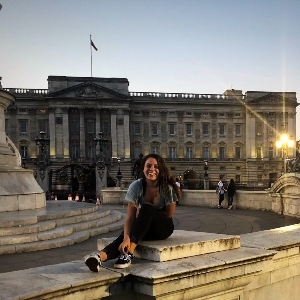
Step 1: Procuring a Visa ~ When it comes to the task of procuring a visa, timing is of the utmost importance. This task may seem straight-foward in theory, but in reality there are many unforeseeable obstacles that often crop up and make this process tedious. Once you have been granted an unconditional offer from Queen Mary, the school will also provide you with a ‘Confirmation of Acceptance for Studies’ (CAS) form. As soon as you have access to this information, you also have the ability to start your visa application and I would advise that youdo this at the soonest possible opportunity. In my case, I received my CAS information in early July, and even though I started my visa application within the week, I still didn’t receive my actual visa until the first week of September. As long as you check your emails frequently, fill
out all the relevant government forms, and keep track of any in-person appointments you may have, you will receive your visa in plenty of time before freshers week!
Step 2: Choosing What to Pack ~ In all the anticipation that surrounds attending university for the first time, it is easy to get swept up in the excitement and overpack. As an international student especially, trying to fit all of your possessions you’ve deemed “most essential” in a few suitcases is incredibly difficult. If you’re lucky and have the option to drive to campus, then you can be a little less reserved in your packing. However, if you’re flying to campus for your move-in day, you’re most likely limited to three suitcases maximum. Please keep in mind that you can always drop your suitcases off in your room and then go and pick up some essentials in the city. You are in no way required to fit everything you need in those three bags! From my personal experience, it was quite tempting to pack my entire wardrobe because I had no idea how many different outfits I would need for different occasions. In reality, the clothes I ended up wearing the most was what I packed the least for...comfy, casual clothes for hanging out in. Youalways have the opportunity to reassess what you need to bring more of during winter break. Remember, whatever you bring for your room at the beginning of the year is going to have to be
packed up and brought back home at the end of the year, so try and restrain yourself from panic-packing everything!
Step 3: Adjusting to City Life ~ This step might not be as big of an adjustment for all international students. As someone that grew up in the suburbs their whole life, it certainly took some time for me to get used to city life. However, adjusting to the transportation systems indifferent countries can be a bit difficult for everyone. There are several transportation apps youcan download on your phone to help you get your bearings in the city. My personal favorite is Citymapper! Citymapper is a free app that will not only show you the best way to get to your destination via public transport, cab, or walking, but also inform you of any delays that mightprevent you from getting there on time. Although you can easily book a cab using the Citymapper app, you can also use Uber or the Santander Cycles apps to find alternative
transportation options. Once you've gotten the hang of traveling in the city, you’ll never stop!
There’s so many great places to explore. Travel is also a great way to get to know your peers during your first few weeks at university. I would suggest making group chats with your classmates and organizing group outings. Soon enough, you’ll find yourself making new friends
and great memories.
Step 4: Understanding the English Education System ~ To me, this is the most crucial part ofbeing an international student. If you made it through the application process and have already received an offer, there is a strong likelihood that you already know what to expect from
attending university in London. Despite doing this research myself, I was worried that I was going to be at a disadvantage compared to the students that had grown up in the English education system and knew exactly what was expected from them. However, this could not be
further from the truth. Going to university for the first time is an adjustment and you should remind yourself that this is a new experience for all of your peers. Also, considering that Queen Mary is, “one of the most internationally diverse institutions in the world” a good portion of the student population will have the same questions you have when it comes to understanding the English education system- so don’t be afraid to ask! The tutors and the lecturers at Queen Mary provide very detailed instructions on what they expect from each assignment and they are always available via emails or office hours for any additional questions you may have. Although attending school in a different country can be overwhelming, the faculty at Queen Mary go above and beyond in ensuring each international student is able to make the adjustment.
Step 5: Staying Connected During Lockdowns/Breaks ~ This was not a step I anticipated when I first applied to be an international student. The process of leaving your friends for an extended period of time every summer is never easy and the ongoing pandemic has only exacerbated this issue. My first year was unfortunately cut short when Covid-19 became a major issue for the U.K. in the March of 2019. One minute I was enjoying being reunited with my friends from our winter holiday and the next we were all packing up our rooms and preparing to say goodbye for six months. Although this situation may be unique to the current world climate, I was forced to learn the skills international students have to utilize over their breaks from university earlier than most. Despite the increased access to technology that student’s currently enjoy, it is far too easy to forget to respond to messages or lose touch with the people that are important to us when we’re not able to see them every day. The best advice I could give for this situation is try to maintain the same contact you had with your friends when you were living on campus, while you are at home. Essentially, this means, if you spoke to certain friends once or twice a day, aim to message them at the same frequency as when you saw them in person. This may seem excessive in theory, but in reality it’ll only serve to strengthen your friendships and maintain the relationships you made at university. If this seems like an overwhelming task, then an alternative would be to make a group chat with your closest friends and utilize it throughout your breaks.
This way you can organize activities like group facetime calls, study sessions, movie nights and other fun activities. If you do your best to keep in touch with the people that are closest to you, your breaks will fly by and before you know it you’ll be back at university!
I hope this blog post was helpful for those of you considering becoming an international student at Queen Mary! Hopefully, I will be seeing some of you on campus soon!
Life as a Student during a Pandemic
Aya, Politics and International Relations BA
The challenge of getting through university during a pandemic is one I never thought I’d face, but almost a year on and with the right mindset and support from Queen Mary I am getting through it. The paramount fact to keep in mind is that you are not alone and the university is there to support you through any struggles. One way I have reached out for support from the university is through contacting tutors for any help or concerns I have had, as they are always there to help. Another factor that has also helped me is making sure I keep active, going for a walk daily (whilst ensuring you are keeping safe) really allows me to clear my mind and return to my academic work with a fresh mindset. If studying at home gets overwhelming, I also make use of study space at Queen Mary which allows me to concentrate better, whilst still following covid-19 safety regulations.
Lectures and Seminars
Everyone has different learning styles so it is important to find what works for you. The main thing I ensure is to plan ahead for both lectures and seminars. I find that QMplus facilitates this as the weeks are divided in a way that allows you to organise exactly what you need to plan. For example, QMplus (Queen Mary's online learning environment) displays the essential and recommended readings or tasks needed before each seminar and lecture. For seminars, I make sure to check if there are any specific tasks or questions to be discussed beforehand and prepare accordingly, whilst also having notes ready from the essential readings. For lectures, I do the essential reading and prepare a notebook to take down anything useful the lecturer discusses.
Extracurricular
I know it seems impossible to maintain extracurricular activities during a lockdown. However you can make it work, as many opportunities have moved online. Make sure you are still making use of joining societies as these hold events such as zoom meetings, which will allow you to maintain a student experience and take a break from academic pressure. Many internships are still taking place online, so attempt to apply to the ones that interest you. One factor I love about Queen Mary is how students are kept updated about opportunities, as my email is always filled with this. I think now more than ever it’s important to keep track of these opportunities as it will make getting through this lockdown as a student a lot more easy.
How to approach your readings
Ruby, Politics and International Relations BA
Firstly, it must be said that every student will have a different approach to their readings that best suits them. However, it is thought that our brain takes more in when reading from a book or printed text and making written notes, rather than from a computer. I tend to take a multi-faceted approach, using different techniques for different readings.
Also, reading gets easier as you progress in your degree. You read faster and learn to pick out the most relevant bits. Make sure you get rid of all distractions, like social media notifications that appear on your laptop. I find it is better to read quickly with breaks than slowly with no breaks, otherwise it can become tiring and you lose focus.
If you are confused about finding a reading, you can email your module convener or seminar tutor. All of the readings should be available online and free. On the Queen Mary library page, it is best to use ‘Global search’ and type in the author name, year, and title. If it’s not there, you can run a simple internet search with the same details, or just the whole citation (what’s written on the reading list on QMplus).
Reading from a computer
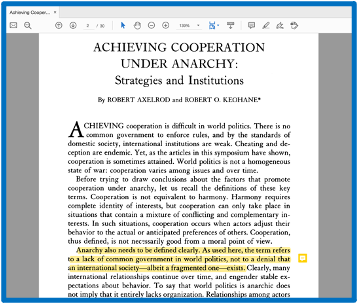 As you’ll be doing a lot of readings each week, it most likely is not feasible to print off every single one, as this will leave you with a LOT of folders and paperwork, and you won’t end up using a lot of the materials. I generally like to read most of my readings using Adobe Reader (Preview on Mac is similar) on my computer, which allows you to highlight texts, and add comments. There is no need to pay for software, as all you’ll need is these two tools. I try to minimise the amount of highlighting I do, because otherwise it’ll make finding quotes for an essay a long-winded process. The software allows you to see every quote you have highlighted and copy and paste it, so you can easily transfer it to a word document. Most computers with a precision touchpad allow you to swipe easily between windows, which is really useful for writing essays. You can highlight something on the reading, copy it, and swipe the touchpad to paste it onto your Word document.
As you’ll be doing a lot of readings each week, it most likely is not feasible to print off every single one, as this will leave you with a LOT of folders and paperwork, and you won’t end up using a lot of the materials. I generally like to read most of my readings using Adobe Reader (Preview on Mac is similar) on my computer, which allows you to highlight texts, and add comments. There is no need to pay for software, as all you’ll need is these two tools. I try to minimise the amount of highlighting I do, because otherwise it’ll make finding quotes for an essay a long-winded process. The software allows you to see every quote you have highlighted and copy and paste it, so you can easily transfer it to a word document. Most computers with a precision touchpad allow you to swipe easily between windows, which is really useful for writing essays. You can highlight something on the reading, copy it, and swipe the touchpad to paste it onto your Word document.
Reading a physical copy
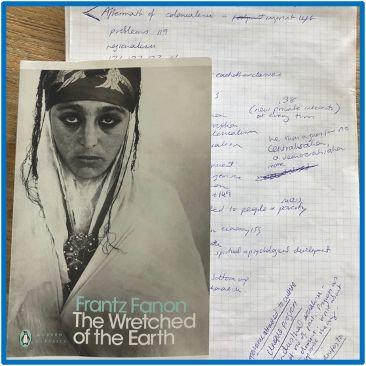 I usually print out a text which I am doing an essay on, or want to get really immersed in. This is particularly important for long texts. It is particularly useful to get sticky index tabs (they are really cheap from Amazon) to mark the pages you have made notes on. Sometimes if I have to read a whole book, I’ll buy it from Amazon. It’s too expensive to do this often, but it is really nice to have a physical book to make notes in, and reading a book is generally more enjoyable than other methods.
I usually print out a text which I am doing an essay on, or want to get really immersed in. This is particularly important for long texts. It is particularly useful to get sticky index tabs (they are really cheap from Amazon) to mark the pages you have made notes on. Sometimes if I have to read a whole book, I’ll buy it from Amazon. It’s too expensive to do this often, but it is really nice to have a physical book to make notes in, and reading a book is generally more enjoyable than other methods.